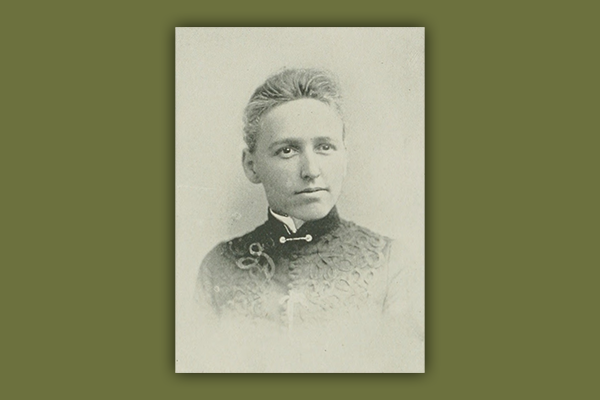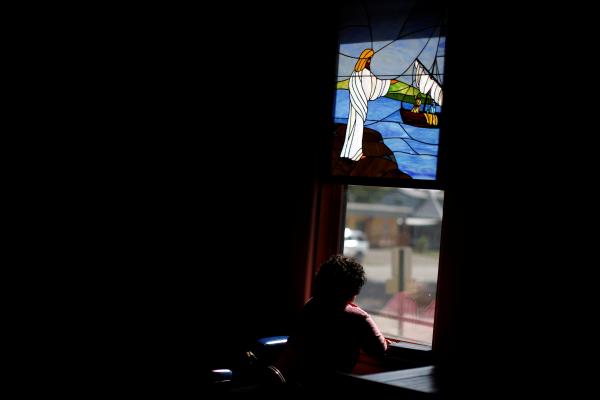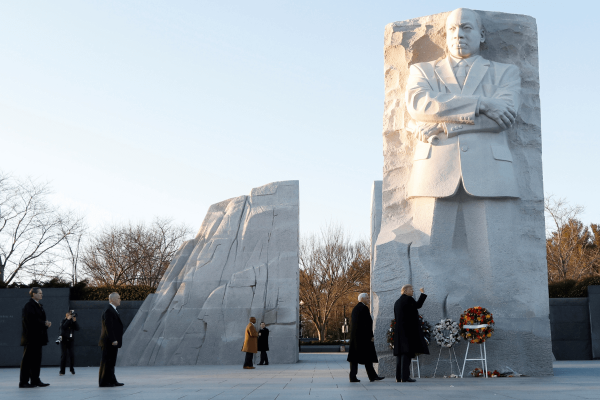There have always been demagogues. Those who win power and popularity by arousing the prejudices of the people. Demagoguery was not invented by Donald Trump or Hitler. I’ll bet even Pharaoh in the book of Exodus didn’t invent the concept, but he perfected it. He never knew Joseph, the son of Jacob. He didn’t personally benefit from Joseph’s leadership and wisdom. Joseph, a Hebrew man brought to Egypt as a victim of human trafficking, but who with God’s favor rose to become the most powerful man in Egypt — he was the man whose interpretations of dreams saved everyone from famine.
Not knowing Joseph, Pharaoh looked at the Hebrews and said,
“There’s so many of them! They’re disgusting.”
“They’re stronger than we are!”
“What if they join our enemies against us?”
“We need their labor! What if they escape?”
Fear became the driving force for Pharaoh as he dealt with Israelites, and he enslaved God’s people and demanded that heavier work be laid on them.
He was not unlike those today who look at Syrian mothers nursing their babies in camps on the edge of a desert and only see a threat to national security. Somehow, the most vulnerable people are often made scapegoats in the schemes of the powerful. In our country, it’s immigrants, Muslims refugees, Mexicans, and other people of color. In the Biblical account, it’s the Hebrews — the people who would come to be known as the Israelites.
So, God sends liberators to the Hebrews: The women are the first liberators. First, the midwives who cleverly defy Pharaoh’s order to kill all male Hebrew babies at birth. Then, a Levite mother who realizes she can’t hide her 3-month-old son any longer, so she puts him in a basket in the river. Soon, Pharaoh’s daughter finds Moses floating by, has compassion, and raises that leader of the people as her own. And finally, Miriam, Moses’ older sister who watches over him in the river.
Miriam fiercely protected her little brother. Though she is a simple, enslaved girl, she courageously approaches Pharaoh’s daughter and offers to help with the child found floating in the river: “I can get a Hebrew woman to nurse the child for you.” And she does — her own mother, of course.
We don’t hear anything of Miriam again until after the exodus and the miraculous escape through the Red Sea. By then, she is called a prophetess, the first person in the Torah to be given that title. But what must it have been like for her to be there through the plagues and the march through the Red Sea? What must if have been like to be an eye-witness to the mighty hand of God reaching in to rescue her people?
Miriam and the other women must have prayed for freedom for themselves and their families. Like many refugees, they must have lain awake at night imagining life in a new land, where they could settle and begin anew in freedom. A life where their children were safe and provided for — where they didn’t live in fear or uncertainty anymore.
And so, it must have seemed like a dream when God heard their cries and began moving in their midst through Moses. Perhaps while Moses negotiated with Pharaoh, Miriam was preparing the people for the journey they would be making toward freedom. Perhaps as Moses was herding the Israelites out of town, Miriam was voicing encouragement and providing logistical support. Interestingly, she apparently danced and sang a sermon when they crossed the sea — and maybe all sermons would survive for thousands of years if they were as brief, expressive, and lyrical.
Miriam’s song punctuates the celebration after their dramatic exodus — her creative and embodied spirituality leads the women in thanksgiving and rejoicing. And like the women Miriam leads, I wonder if refugees upon entering a new land feel their troubles chasing them like menacing chariots. Refugees flee to a new country to find rest from all that has pursued them — looking for wide open spaces where they can breathe and express their thanksgiving as well as their pain, just as the Hebrews did in the wilderness.
The last we hear of Miriam is emblematic of the life of refugees today. As it turns out, some of us are never given an opportunity to leave the wilderness. Like Miriam, many refugees will die without ever finding a safe and secure home. They are turned away by our country, sometimes even at the airport where they arrived with visas in hand after selling everything they owned in the refugee camp.
Miriam never reaches the Promised Land; she’s buried in the wilderness of Zin. But the demagogue was defeated and God’s people were freed.
God sent liberators to the Hebrews, but who will liberate the refugees in camps, on rafts drifting at sea, at the edges of western borders?
Got something to say about what you're reading? We value your feedback!







